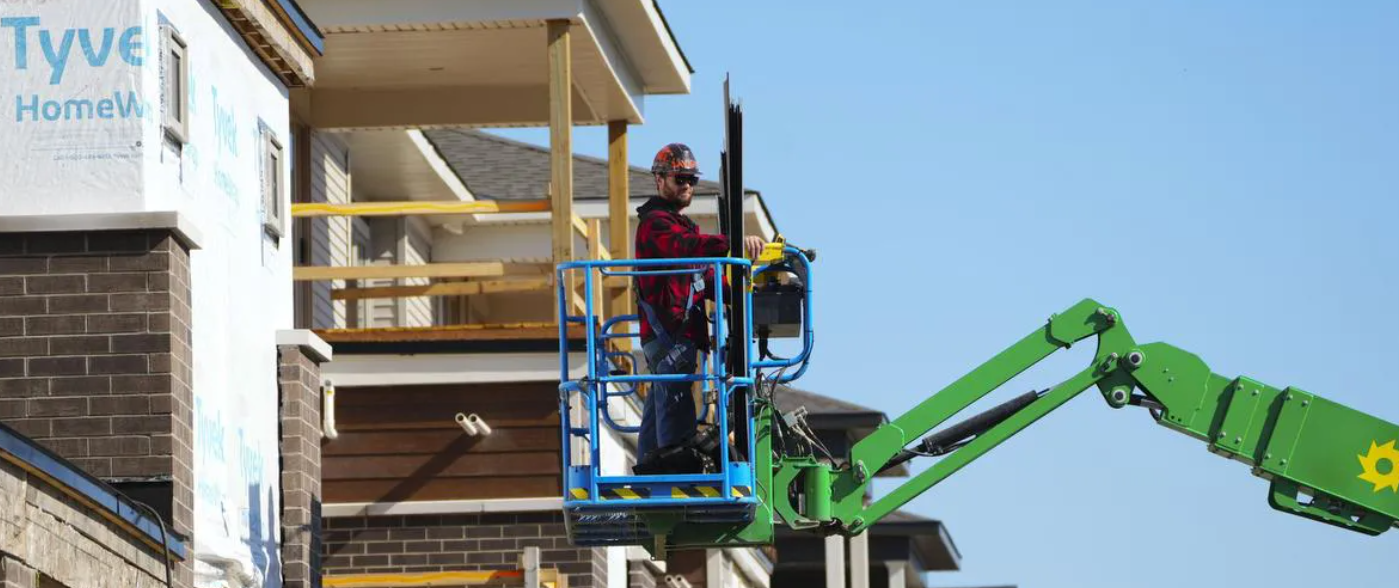By Mike Collins-Williams
Click here to read the article at TheSpec.com.
Canada’s population is growing at a historic rate. From July to September, our population grew by roughly 285,000 people. An incredible 700,000 people have been added in the past year. Most of these people are moving to Ontario, where we have a shortage of housing. To cope with the affordability crisis, teachers, health care workers, and hospitality industry workers are fleeing our cities. These are the very people who keep our cities running. Continuing along this path is not an option. Bold and transformative action is required.
In the past several weeks, the provincial government has made significant changes to how housing is built. The province passed an ambitious piece of housing legislation (Bill 23) and in Hamilton they enabled a boundary expansion and removed a 30-storey height limit. We have been hearing concerns about these provincial changes. It’s important to remember that people have a natural tendency to resist change. The unfortunate reality is that the changes needed to fix the housing crisis will be disruptive if they are to be transformative. The challenge we’re encountering is that our local representatives are not adequately planning for the young families and new Canadians who wish to make Hamilton home. Rather, they have spent the past decade limiting housing options and trying to extract all kinds of costs from new housing under the political slogan “growth pays for growth.” This disproportionately and unfairly downloads the cost of new infrastructure onto young people, new residents and new immigrants.
The most concerning part of this story is that the city isn’t properly spending the money new home purchasers have paid in fees and charges. In fact, the city’s unspent development charge reserve fund has ballooned by 135 per cent over the past four years from $128.1 million in 2018 to $373.6 million at the end of 2021. The city is collecting far more money from new housing then it is spending. Despite the unspent reserves, here in Hamilton development charges have nearly tripled over the last 12 years with total taxation on new housing being 20 per cent of the purchase price. Clearly something is amiss with those kinds of increases being shouldered by young people struggling to break into the housing market.
That is why the Ontario Home Builders’ Association has called on the provincial government to launch an independent audit of major municipalities’ collection and use of growth-related charges. Given the accumulation of significant municipal reserves, it is in the interest of the public to ensure that the funds collected are used for their intended purpose. Currently municipalities across the province hold reserves in excess of $9 billion from development charges and parkland fees, and these reserves are growing rapidly.
We’ve seen all sorts of misinformation on what the provincial changes mean. It’s important that we’re clear. The province is not proposing to give developers a free ride. Instead, they’re attempting to encourage the construction of the types of homes we need most: not for profit homes, affordable homes, and more two/three bedroom rental housing by no longer levying charges on these types of homes. All of which are urgently in short supply.
Arguably the most vulnerable members of society who desperately need more affordable housing should not be having these development charges costs passed onto them. As President Joe Biden once said, “Don’t tell me what you value. Show me your budget, and I’ll tell you what you value.” We should all be able to agree that if Hamiltonians value affordable housing, the infrastructure to support it should be funded broadly by the tax base.
We all need to work together to help solve the housing crisis. Reducing government charges on new housing — especially affordable and rental housing needs to be a part of the solution. Tinkering around the edges, with a patchwork of tiny changes will not generate the transformative change Ontario needs. More action is needed.






